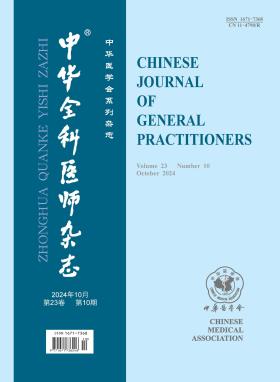Experience of frontline medical workers in COVID-19 quarantine points: a qualitative study
Q4 Medicine
引用次数: 0
Abstract
Objective: To study the experience of frontline medical workers in COVID-19 quarantine points Methods: Purposive sampling method was employed and 12 frontline medical workers in COVID-19 points of Zhaoyuan City were selected for semi-structured and in-depth interview Colaizzi's seven-step analysis method was adopted to analyze and categorize the data Results: The real experience of frontline medical workers in quarantine points were classified into five themes: professional mission and pride, inadequate initial response in dealing with public health emergencies (shortage of personal protective equipment,inadequate preparation of medical workers and imperfect settings of quarantine points), having some negative emotions (worrying about being infected and feeling fearful for family members), facing complex and diverse working difficulties (repugnance and diversified demands of people quarantined, heavy workload, discomfort from personal protective equipment and occupational exposure), and gaining support and appreciation (getting support from epidemic control and prevention departments as well as medical systems and winning appreciation from people quarantined) Conclusions: The frontline medical workers are lack of experience in dealing with public health emergencies and have some psychological and working pressure Administrative department should further complete the emergency plan of centralized isolation medical observation, strengthen the contingency management of public health emergencies, attach importance to the mental health of medical workers, optimize management methods and establish flexible work schedules © 2021 Chinese Medical Association新型冠状病毒肺炎疫点一线医务人员经验的定性研究
方法:采用目的抽样法,选取招远市新冠肺炎疫点的12名一线医务人员进行半结构化深度访谈,采用Colaizzi七步分析法对数据进行分析和分类。结果:将疫点一线医务人员的真实体验分为五大主题:职业使命和自豪感,突发公共卫生事件初期应对不足(个人防护装备短缺、医护人员准备不足、隔离点设置不完善),存在一定负面情绪(担心被感染、担心家人),工作困难复杂多样(被隔离人员反感和需求多样化、工作量大,获得支持和赞赏(获得防疫部门和医疗系统的支持,赢得被隔离者的赞赏)。行政部门应进一步完善集中隔离医学观察应急预案,加强突发公共卫生事件应急管理,重视医务人员心理健康,优化管理方式,建立灵活的工作时间安排©2021中华医学会
本文章由计算机程序翻译,如有差异,请以英文原文为准。
求助全文
约1分钟内获得全文
求助全文

 求助内容:
求助内容: 应助结果提醒方式:
应助结果提醒方式:


